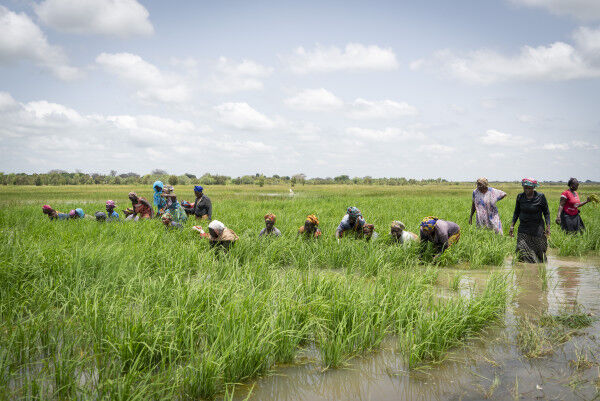A former aide to ex-President Muhammadu Buhari, Bashir Ahmad, has defended the Federal Government’s controversial decision to grant import waivers on food items such as rice, saying it is a necessary short-term measure to ease hunger in the face of economic hardship.
Ahmad made the statement on X (formerly Twitter) on Sunday in response to criticism from one Dr. Yakubu Sani Wudil, a renewable energy expert and founder of Arewa Mentorship Forum, who faulted the government’s decision to waive import duties rather than support local farmers with subsidies and equipment.
Dr. Wudil wrote, “The FG wanted to crash the price of rice. Instead of subsidizing fertilizers, gasoline, and providing modern farm equipment for our farmers, they decided to offer import waivers, building other countries’ economies while our local farmers run at a loss.”
He followed up with several questions: “What happens when the imported rice is finished in the market? What happens to our local farmers who lost their businesses? Is this helping the naira?”
In response, Ahmad acknowledged Wudil’s concerns but offered what he called “a side of the story many are not aware of.”
“To be honest, I am with the Federal Government on this one,” he said. “Many of the interventions you rightly highlighted, such as fertilizers and farm equipment, were actually provided by the previous administration under the late President Buhari, particularly through initiatives like the Anchor Borrowers’ Programme. Billions of naira were allocated to farmers… but we all know what happened.”
According to Ahmad, funds were grossly misused by beneficiaries. “Some farmers received loans running into billions, some even up to ₦6 billion, but instead of investing in agriculture, many diverted the funds to other sectors like oil and gas, bureau de change, and other luxury ventures,” he said.
He added that even the farmers who produced food hoarded their harvests to inflate prices, worsening food insecurity.
Ahmad also pointed to Buhari’s decision to close Nigeria’s land borders to food importation as another genuine effort to boost local production.
He said, “After ABP, the government went further by closing the borders to food importation, a move aimed at encouraging local production because the money to farm was allocated adequately. As someone who was directly at the receiving end, I can confidently say that no single policy attracted more criticism for the late President Buhari than the border closure.
“Despite his honest and well-intentioned explanations, the policy was misunderstood and widely attacked—even when the signs of success were evident, rice importation dropped, and many Nigerians were pulled out of extreme poverty.
“The unfortunate truth is that the beneficiaries of the initiatives failed the government and the people. They didn’t help stabilise food prices. Instead, they formed cartels, manipulated supply and created artificial scarcity to make outrageous profits.”
Defending the Tinubu administration’s resort to waivers, Ahmad said: “Yes, food import waivers have consequences, and ideally, they shouldn’t be the go-to option. But given the betrayal of trust by key players in the local value chain, it has become the only immediate relief available to reduce hunger and suffering.”
He stressed that while the long-term solution lies in reviving and closely monitoring agricultural interventions, “for now, the people need to feed, first.”







